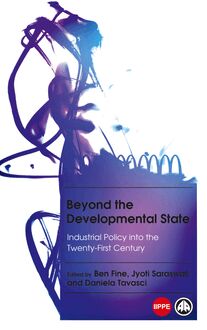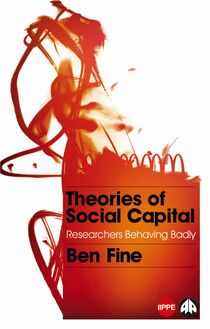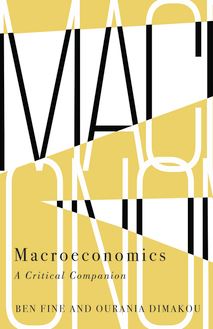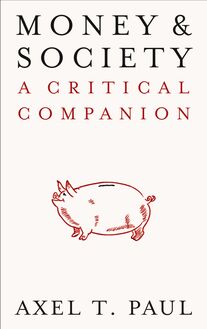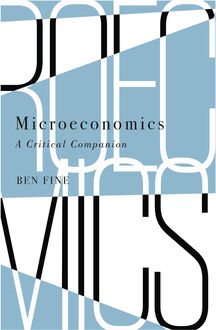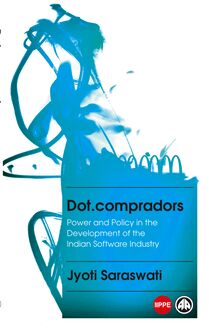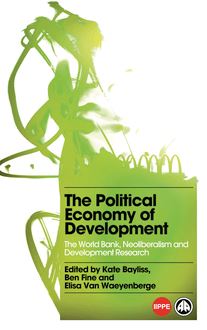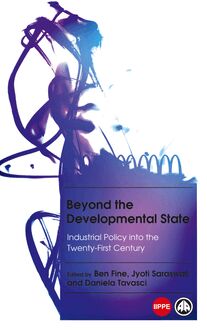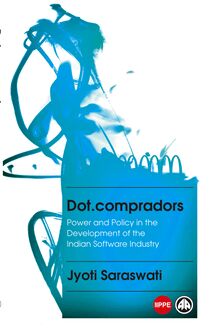-
 Univers
Univers
-
 Ebooks
Ebooks
-
 Livres audio
Livres audio
-
 Presse
Presse
-
 Podcasts
Podcasts
-
 BD
BD
-
 Documents
Documents
-
- Cours
- Révisions
- Ressources pédagogiques
- Sciences de l’éducation
- Manuels scolaires
- Langues
- Travaux de classe
- Annales de BEP
- Etudes supérieures
- Maternelle et primaire
- Fiches de lecture
- Orientation scolaire
- Méthodologie
- Corrigés de devoir
- Annales d’examens et concours
- Annales du bac
- Annales du brevet
- Rapports de stage
La lecture à portée de main
Vous pourrez modifier la taille du texte de cet ouvrage
Découvre YouScribe en t'inscrivant gratuitement
Je m'inscrisDécouvre YouScribe en t'inscrivant gratuitement
Je m'inscrisEn savoir plus
Vous pourrez modifier la taille du texte de cet ouvrage
En savoir plus

Description
This is a comprehensive, critical introduction to the sociology of money, covering many topics, from the origins of money to its function today. Though our coins, bank notes and electronic tokens do function as means of exchange, money is in fact a social, intangible institution. This book shows that money does indeed rule the world.
Exploring the unlikely origins of money in early societies and amidst the first civilizations, the book moves onto inherent liaison with finance, including the logic of financial markets. Turning to the contemporary politics of money, monetary experiments and reform initiatives such as Bitcoin and positive money, it finally reveals the essentially monetary constitution of modern society itself.
Through criticizing the simplistic exchange paradigm of standard economics and rational choice theory, it demonstrates instead that money matters because it embodies social relations.
Preface
1. Economic Theories of Money – and Their Critiques
1.1. Barter, Exchange and Money
1.2. Objective versus Subjective Theories of Value
1.3. The Improbability of Exchange
2. Money’s Unlikely Origins
2.1. Gift-exchange and ceremonial monies
2.2. Money and (the End of) Violence
2.3. Economies of Sacrifice
2.4. Secrets of the Coin
3. Money and Finance
3.1. Time and Money
3.2. The Logic of Financial Markets
4. The Politics of Money
4.1. The Foundations and Fundamental Problems of Contemporary Money
4.2. Private Monies (or Bitcoin)
4.3. Sovereign Money
4.4. Central Bank Independence and the Inescapable Politicality of Money
5. Money and Society
5.1. Alienation and Freedom
5.2. Money and Functional Differentiation
References
Index
Sujets
Informations
| Publié par | Pluto Press |
| Date de parution | 20 novembre 2020 |
| Nombre de lectures | 0 |
| EAN13 | 9781786807120 |
| Langue | German, Middle High (ca.1050-1500) |
Informations légales : prix de location à la page 0,1348€. Cette information est donnée uniquement à titre indicatif conformément à la législation en vigueur.
Extrait
Money and Society
Published in association with the
International Initiative for Promoting Political Economy (IIPPE)
Edited by
Ben Fine (SOAS, University of London)
Dimitris Milonakis (University of Crete)
Political economy and the theory of economic and social development have long been fellow travellers, sharing an interdisciplinary and multidimensional character. Over the last 50 years, mainstream economics has become totally formalistic, attaching itself to increasingly narrow methods and techniques at the expense of other approaches. Despite this narrowness, neoclassical economics has expanded its domain of application to other social sciences, but has shown itself incapable of addressing social phenomena and coming to terms with current developments in the world economy.
With world financial crises no longer a distant memory, and neoliberal scholarship and postmodernism in retreat, prospects for political economy have strengthened. It allows constructive liaison between the dismal and other social sciences and rich potential in charting and explaining combined and uneven development.
The objective of this series is to support the revival and renewal of political economy, both in itself and in dialogue with other social sciences. Drawing on rich traditions, we invite contributions that constructively engage with heterodox economics, critically assess mainstream economics, address contemporary developments, and offer alternative policy prescriptions.
Also available
The Political Economy of Development:
The World Bank, Neoliberalism and
Development Research
Edited by Kate Bayliss, Ben Fine and
Elisa Van Waeyenberge
Theories of Social Capital:
Researchers Behaving Badly
Ben Fine
Money and Society:
A Critical Companion
Axel T. Paul
Microeconomics:
A Critical Companion
Ben Fine
Macroeconomics:
A Critical Companion
Ben Fine and Ourania Dimakou
Beyond the Developmental State:
Industrial Policy into the Twenty-First Century
Edited by Ben Fine, Jyoti Saraswati and Daniela Tavasci
Dot.compradors:
Crisis and Corruption in the Indian Software Industry
Jyoti Saraswati
Money and Society
A Critical Companion
Axel T. Paul
Translated by Philip Mader
First published 2020 by Pluto Press
345 Archway Road, London N6 5AA
www.plutobooks.com
Copyright Axel T. Paul 2020
The right of Axel T. Paul to be identified as the author of this work has been asserted by him in accordance with the Copyright, Designs and Patents Act 1988.
British Library Cataloguing in Publication Data
A catalogue record for this book is available from the British Library
ISBN 978 0 7453 4195 8 Hardback
ISBN 978 0 7453 4196 5 Paperback
ISBN 978 1 7868 0711 3 PDF eBook
ISBN 978 1 7868 0713 7 Kindle eBook
ISBN 978 1 7868 0712 0 EPUB eBook
This book is printed on paper suitable for recycling and made from fully managed and sustained forest sources. Logging, pulping and manufacturing processes are expected to conform to the environmental standards of the country of origin.
Typeset by Stanford DTP Services, Northampton, England
Simultaneously printed in the United Kingdom and United States of America
Contents
Preface
1. Economic Theories of Money - and Their Critiques
1.1. Barter, Exchange and Money
1.2. Objective versus Subjective Theories of Value
1.3. The Improbability of Exchange
2. Money s Unlikely Origins
2.1. Gift-exchange and ceremonial monies
2.2. Money and (the End of) Violence
2.3. Economies of Sacrifice
2.4. Secrets of the Coin
3. Money and Finance
3.1. Time and Money
3.2. The Logic of Financial Markets
4. The Politics of Money
4.1. The Foundations and Fundamental Problems of Contemporary Money
4.2. Private Monies (or Bitcoin)
4.3. Sovereign Money
4.4. Central Bank Independence and the Inescapable Politicality of Money
5. Money and Society
5.1. Alienation and Freedom
5.2. Money and Functional Differentiation
References
Index
Preface
In this book I aim to offer a theory of money, not merely to discuss theories of money. I seek to paint the rich panoply of existing theories of money onto a sociological - or, more precisely, institutionalist - canvas. This requires us to be enlightened by, yet also disabused of, much of economic theory. Naturally, my efforts stand on the shoulders of others research, drawing upon a long line of theorists of money who have already written about many, perhaps even all, of the ideas I will discuss here, or at least similar ideas. Precisely for this reason, it would be impossible to pinpoint exactly which theorists in particular deserve the credit for most of the ideas advanced in this book. Whoever wishes to trace their genealogy, however, will find references to the most important studies spread throughout the book. I therefore make no claim to any particular originality, but hope at least to attain a certain coherence in sorting, organising, appraising and re-evaluating the many theories of money that have informed contemporary thinking.
Let me begin by sketching the ideas that will be developed in this book: money is an institution and, at the same time, a material symbol arising from a particular type of social relation, its regulation and codification. It is not, as many others have argued, a tool invented by individual actors merely to optimise exchange. This assertion will probably provoke disagreement from the authors whose analyses I contradict (or have perhaps simply overlooked), but that is precisely the spirit of academia. As it happens, the target audience for this book is not so much competitors in the field of monetary theory as laypeople: perhaps, in particular, those with some background in the social sciences or humanities, who might take a special interest in money and political economy. For them, I hope to make clearer than it already ought to be that to leave the issue of money to economists and the financial professionals would be an intellectual failure and a political problem. Money as a social institution affects all of us, and needs to be understood by everyone.
The first chapter deals with the theory that money arose from exchange, which continues to enjoy much currency in economics and beyond, but which turns out to be as empirically untenable as it is log ically implausible. This theory, which presupposes an already existing, rationally calculating homo economicus , not only flies in the face of the sheer improbability and implausibility of the type of economic exchange from which it sees money to have arisen, but also ignores the problems of coordination that stand in the way of anything like markets emerging in the first place.
The second chapter recapitulates those origin stories that enact and reveal the categories (or simply dimensions) of money that have actually mattered in history. First comes money as a measure of value - as a way of thinking, which allows economic value to become imaginable and quantifiable in the first place - and only then physical, intrinsically valuable money. As we shall see, money has non-economic, rather than economic, origins. It served first as a means of debt redemption, and only later as a means of exchange.
The third chapter fast forwards from the early origins of money to the world of contemporary finance. The main point is: money alters temporality, leading to a particular structural problem, namely that money holders appreciate it for its ever present usefulness, yet the benefits of its liquidity can never be enjoyed by all money holders at once, or even to the same extent. We will see how the existence of modern financial markets - in particular, banks and securities exchanges - stems from the attempt to resolve this problem (the liquidity paradox), an attempt that only aggravates the situation, however, by making financial crises a permanent and immanent risk.
The fourth chapter examines the fundamental features and problems of our monetary order. It highlights how the contemporary money creation process is largely a private one, and therefore only partially controllable by policy, and shows why this means we need a creditbased rather than an exchange-based understanding of money. The chapter reveals the dual nature of money, as both public good and private property, respectively that any monetary order must always balance the interests of debtors against those of creditors, by looking at current proposals for alternative monetary systems, specifically: private electronic currencies such as Bitcoin, and sovereign money reforms to re-establish the state s control over money creation. Because money is inevitably political , and can never be neutral, we need to ask about whether it is possible to democratise our monetary order, but where the limits to this lie.
The fifth, and most distinctly sociological of the five chapters, discusses the ambivalence of money for individuals as well as societies. As we shall see, the detriments of money for morality and for the lifeworld of individuals are matched by gains in freedom that scarcely anybody would be willing to forego. But as the chapter s second part shows, individuals scarcely have a choice about whether to use money or not. Rather, the functional differentiation of modern societies - their separation into autonomous areas such as science, law, personal companionship and so on - practically necessitates the existence and usage of money as an all-encompassing means for governing society. At the same time, the towering position that money has acquired in modern society, and even more so the structural dominance of the economic sphere over everything else, ends up posing a severe threat to the autonomy of society.
The different chapters and their subsections are written in such a way as to be comprehensible on their own. However, taken together they tell a story that is more coherent and complete.
My thanks go out to Franca Fellmann, Malte Flachmeyer, Steffen Herrmann, Magdalena K ng,
-
 Univers
Univers
-
 Ebooks
Ebooks
-
 Livres audio
Livres audio
-
 Presse
Presse
-
 Podcasts
Podcasts
-
 BD
BD
-
 Documents
Documents
-
Jeunesse
-
Littérature
-
Ressources professionnelles
-
Santé et bien-être
-
Savoirs
-
Education
-
Loisirs et hobbies
-
Art, musique et cinéma
-
Actualité et débat de société
-
Jeunesse
-
Littérature
-
Ressources professionnelles
-
Santé et bien-être
-
Savoirs
-
Education
-
Loisirs et hobbies
-
Art, musique et cinéma
-
Actualité et débat de société
-
Actualités
-
Lifestyle
-
Presse jeunesse
-
Presse professionnelle
-
Pratique
-
Presse sportive
-
Presse internationale
-
Culture & Médias
-
Action et Aventures
-
Science-fiction et Fantasy
-
Société
-
Jeunesse
-
Littérature
-
Ressources professionnelles
-
Santé et bien-être
-
Savoirs
-
Education
-
Loisirs et hobbies
-
Art, musique et cinéma
-
Actualité et débat de société
- Cours
- Révisions
- Ressources pédagogiques
- Sciences de l’éducation
- Manuels scolaires
- Langues
- Travaux de classe
- Annales de BEP
- Etudes supérieures
- Maternelle et primaire
- Fiches de lecture
- Orientation scolaire
- Méthodologie
- Corrigés de devoir
- Annales d’examens et concours
- Annales du bac
- Annales du brevet
- Rapports de stage
